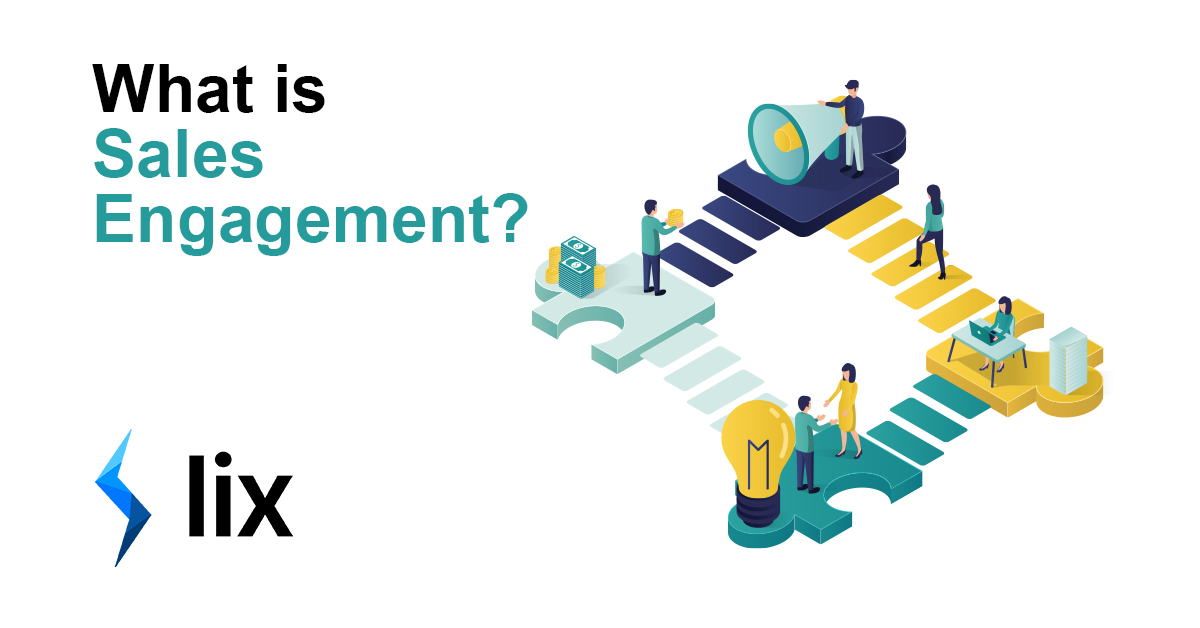The term “sales engagement” is used to describe a sales team’s ability to engage buyers with personalised interactions, across multiple channels, during their buyer’s journey. Engagement has become an increasingly important topic for many businesses, particularly those in high-growth markets where competition is fierce. If your business wants to grow, it needs a strong strategy in place to nurture its customers through the buyer’s journey and lead them to conversion.
Sales engagement is a combination of marketing and sales. It’s a process of nurturing prospective buyers with personalized interactions across multiple channels to lead them to conversion. The goal is to increase sales, revenue, and customer lifetime value.
The first thing you need to know about sales engagement is that it isn’t just one thing—it can be used by many different departments in your company, such as marketing or customer success teams. Engagement can also be done across multiple channels like email, phone calls, live chat or video calls (including virtual meetings), social media posts and landing pages.
What is sales engagement management?
Sales engagement management usually refers to a tool, or online platform used by sales teams to develop a strategy and deliver coordinated, targeted messages at key points in the buyer’s journey.
Sales engagement tools can help you:
- Increase your pipeline velocity by targeting buyers when they’re most receptive to new information or products.
- Improve your conversion rate by making it easy for prospects to get started with a demo or trial of your product.
Sales engagement strategy
The first step in developing a sales engagement strategy is to conduct strategic planning. Strategic planning involves setting goals and objectives, understanding the market and your competitors, and understanding the buyer’s journey.
Strategic planning allows you to plan out what needs to happen before any execution takes place. Without this step, there may be no way to measure your results once they come in!
Personalised engagements
The most successful engagement strategies create personalized engagements across multiple channels. It’s important to leverage technology, data and strategy to personalize the customer journey in a way that will resonate with them. The most successful sales engagement strategies are flexible enough to respond to the needs of your customers at every stage of the buying process, while remaining strategic and aligned across channels.
Sales engagement planning
A sales engagement plan can incorporate content marketing, social selling, email marketing and even traditional face-to-face meetings.
Content marketing is just what it sounds like—using content you create (such as blog posts or videos) to attract prospects who are interested in what you have to say. Social selling refers to networking with potential clients through social media channels like LinkedIn and Facebook. Email marketing involves sending personalized messages through email to build rapport with contacts who’ve opted in by providing their contact information. Face-to-face meetings occur when you reach out directly through phone calls or in person at events such as trade shows or conferences.
Sales engagement for leaders
As a sales leader, you need to help your team understand the importance of engagement. It has become an essential part of business operations for companies that want to grow in today’s competitive markets.
As a leader, you also need to develop a strategy and process for engaging with your customers. This should include:
- Having a clear understanding of what your company does, who its audience is, and how it can serve them better than competitors.
- Putting together an effective team that includes representatives from all departments throughout the organization (including marketing).
- Building relationships with potential clients by offering relevant content on social media platforms like LinkedIn or Twitter.
Engagement is a critical component of any sales strategy. It can help you develop new leads, close deals faster and create long-term relationships with your customers. However, it’s not just about having a great strategy in place; you also need tools to manage your outreach efforts and track the results of each interaction. That’s why we developed our platform with sales engagement at its core—to help you develop personalized interactions with your prospects and customers across multiple channels, while giving you real-time insight into performance metrics like open rates, click-through rates and conversion rates. These insights are invaluable when it comes time for planning future outreach activities based on what worked (and didn’t work) before!
